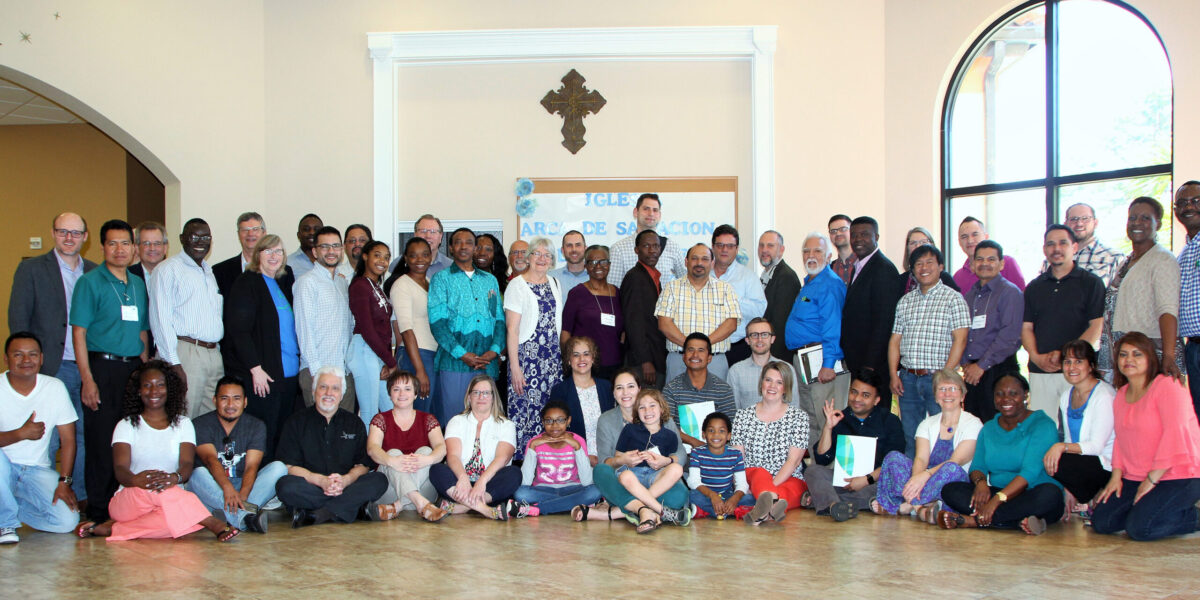FORT MYERS, Florida (Mennonite Mission Network/Mennonite Church USA) – At this second annual gathering of leaders who have planted Mennonite churches, participants anticipated hearing inspiring stories about unconventional ways of doing ministry.
Stories such as the three sisters of Hispanic Garifuna heritage who bring the church directly to women and children who face domestic violence in Florida; the couple in Oklahoma who shares the gospel with bikers; the pastor in Montana who became a bartender to help many to receive Jesus who otherwise would not have set foot in a church.
But at the SENT 2017 Summit, Apr. 6-8, there were also inspiring stories about traditional Mennonite congregations that are sprouting anew.
Mennonite Church USA and Mennonite Mission Network supported the summit, which gathered 75 participants for workshops and fellowship. They heard encouraging sermons, including one by Ervin R. Stutzman, executive director for Mennonite Church USA, and another by Stanley W. Green, executive director for Mennonite Mission Network. Held at Iglesia Menonita Arca de Salvación in Fort Myers, Florida, event participants also heard the story of the host church, which was founded through Mennonite Board of Missions. The congregation rose from a cramped, unsafe building that was nearly forced to close its doors, to constructing an impressive worship facility.
Matthew Shedden shared his unconventional story of how Defiance Church in Glenwood Springs, Colorado, avoided closing its doors. Shedden said that members of the congregation called him to leadership in September 2015 after they had come to grips with its decline and their desire to pass on its legacy. The church had been vibrant for decades since 1955 when it began operating the local Valley View Hospital, which continues to be respected in the community. A Mennonite Voluntary Service unit was also active over the years, serving as a pipeline for church membership and hospital staffing, which included a nursing home. But when Mennonite operation of the hospital ended in 1977, the congregation’s membership began declining as fewer Mennonites remained in the area.
By 2015, the congregation was seeking a new pastor, and Shedden was also looking for a new challenge.
"They were willing to throw everything open and call a new young and crazy-ish pastor to the area," Shedden joked.
He recalled a member of the search committee suggesting that Shedden would be "nuts to do this … I don’t think that this is the best thing for you and your family."
As Shedden and his wife, Kelli, drove home silently, it took about two hours for them to talk about their visit, he said.
"Everything within us was saying, ‘No, no, no,’" Shedden said.
Then, after praying, they realized that it could work. They eventually accepted.
Shedden said that one of the first things he did was to encourage an appreciation of the congregation’s history. Many in the community had forgotten that Mennonites had started the local hospital.
"We had a great chapter 1 … but you guys decided to write chapter 2," Shedden recalled telling the congregation. "Glenwood Springs doesn’t need another hospital. We have to actually begin to think about what will chapter 2 look like."
"That’s unique," said Mauricio Chenlo, Mennonite Mission Network’s minister for church planting, who led the organizing team of SENT 2017. "Matthew is not bringing a negative message to them – you’re dying. He’s bringing a hopeful message that you can be part of a new church that will be birthed from the ground that you planted here."
The congregation agreed that rather than just being the Mennonite church in town, it should be "an outpost of the kingdom." The congregation should make itself more inviting to people in the community. Other local congregations now also gather at its facility, Shedden said.
"The congregation has grown financially and in numbers, some," he said. "It’s still in a fragile place yet. But I can tell you that if you do this, it’s exciting, hopeful, and good work."








